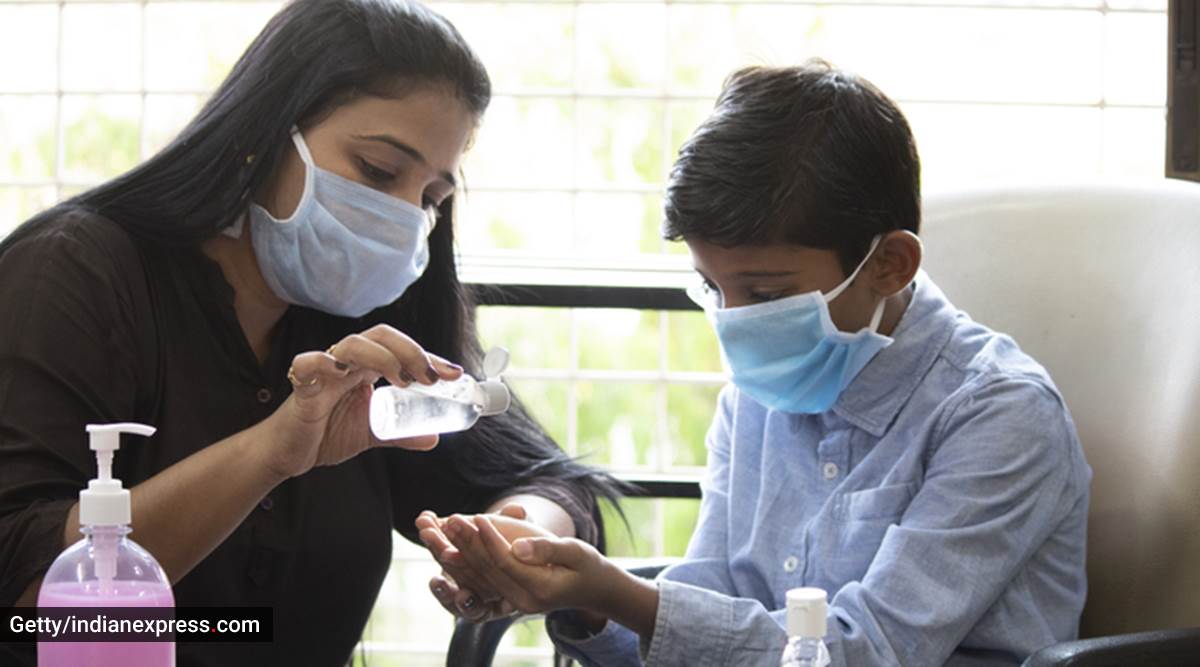Covid-19 and third wave: Here’s what parents need to know about the safety of their kids
While it may not affect a particular age group of kids, doctors warn children with "pre-existing chronic conditions like heart disease, chronic lung disease, diabetes type 1, kidney failure, obesity, may require hospital admission if they acquire infection".

For a while now, a potential third wave of the Covid infection, and its impact on children especially, has been discussed. Parents, everywhere, are worried as to just how much will kids be affected this time, and in what ways they can be kept safe.
To answer their frequently-asked questions and alleviate their fears, Express Parenting reached out to doctors who said that while a third wave is indeed expected, it is difficult to predict exactly when it will come. Thus, the necessary precautions that families have been taking so far, must continue.
Dr Raghuvamsi Chaitra, consultant paediatric intensivist and pulmonologist at Rainbow Children’s Hospital, said we should expect the wave “in the next couple of months”. On whether it will affect kids more this time, he remarked: “Below 18 is the only group which is not vaccinated now. Thus, they are susceptible to the infection. But, this depends on herd immunity (percentage of people immune to disease) and people adhering to social distance, wearing masks and washing hands.”
The doctor explained that while it may not affect a particular age group of kids, children with “pre-existing chronic conditions like heart disease, chronic lung disease, diabetes type 1, kidney failure, obesity, may require hospital admission if they acquire infection. These kids should follow up with their paediatrician and continue medications as per their advice.”
But, if children do get infected, will the infection be more severe than what is seen in adults?
“Fortunately, both in the first and second wave, a small percentage of kids had severe infections requiring hospital admission. This pattern may not change in the third wave. Most of the children with mild infection can be managed at home with teleconsultation with their doctor. A small fraction can have recurrence of fever, rash, and red eyes with some abnormal blood investigations two to six weeks following Covid infection, which we call Multisystem Inflammatory Syndrome (MIS). Children with MIS also do well if recognised early and treated appropriately,” he answered, adding that there is no need for parents to panic.
Dr Jesal Sheth, senior consultant-paediatrician, Fortis Hospital, Mulund said children have been confined to their homes for a while now, and they may feel the urge to step out, causing some recklessness and a potential exposure to the virus. This, she pointed out, is completely avoidable.
The doctor has suggested some practical ways in which children can be kept safe:
* As children stay with their families, their exposure to the virus can be reduced by fully vaccinating both parents.
* Governing bodies should prepare paediatric ICUs with ventilators, disposables used for children, and other necessary equipment.
* Increase the production of medicines needed for paediatric COVID-19 treatment.
* Fast-track clinical trials for vaccination among children.
* Restrict social gatherings across the nation.
* Ensure that Covid-related restrictions continue.
* Do not reopen schools.
* Educate children using creative material about Covid safety, hygiene practices, and how the transmission happens.
* Monitor them at home.
* Ensure they eat healthy and home-cooked food.
For all the latest Parenting News, download Indian Express App.
Source: Read Full Article


